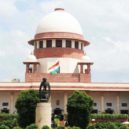PSY OPS OF DATA PIRATES ON GLOBAL POPULATION

Military and political leaders have known for long the importance of a good story with basic truth. They have in fact used the narrative as a weapon since beginning of history. A true story is undoubtedly the most powerful tool in the world. If one can control and manipulate the text, the story in turn can be used to seize the peoples’ imagination and in more subtle ways, even the psyche of a whole nation can be influenced. This narrative can also be scaled, weaponised to unimaginable proportions and can be delivered with devastating efficiency. One of the social media platforms, Facebook has gained its reach far and wide with tentacles that can encapsulate even the untruth and churn it to the believable! It’s no wonder that the world today, is a witness to the ‘psy ops’ of great reach and unprecedented precision, executed by media pirates, through massive manipulation of Social media. For instance, Brexit in Britain, the Presidential elections in USA, the Graffiti youth campaign in Trinidad and Tobago, the ethnic tension in Latvia and the opposition parties’ boycott of elections in Nigeria being a few examples. Big data, Artificial Intelligence, trillion dollar corporations, and the ill-intentioned governments seem to have turned indoctrination into a fascinating art by freely exploiting personal data. Ultimately, this is giving rise to doubts and questions over the survival of democracy and free will in this world.
 The use of Facebook data to target voters has triggered global outrage with the Cambridge Analytica scandal. But the concept is nothing new. Barack Obama, made extensive use of the social network in 2008 and stepped up “micro-targeting” in his 2012 re-election effort. Obama targeted voters and supporters using a software that ran outside of Facebook. When Obama’s campaign did it, it was described, ‘quite brilliant’ and ‘forward thinking’, but today why should it be called a misuse of data? Obama, in fact, was profusely acclaimed for his use of Facebook data mining and micro-targeting, as being very innovative and inventive! The cause for the controversy today, appears to be the fact that Obama appears to have done it right, by obtaining prior consent and permission to use personal data for his campaign, whereas Cambridge Analytica appears to have resorted to a clandestine route!
The use of Facebook data to target voters has triggered global outrage with the Cambridge Analytica scandal. But the concept is nothing new. Barack Obama, made extensive use of the social network in 2008 and stepped up “micro-targeting” in his 2012 re-election effort. Obama targeted voters and supporters using a software that ran outside of Facebook. When Obama’s campaign did it, it was described, ‘quite brilliant’ and ‘forward thinking’, but today why should it be called a misuse of data? Obama, in fact, was profusely acclaimed for his use of Facebook data mining and micro-targeting, as being very innovative and inventive! The cause for the controversy today, appears to be the fact that Obama appears to have done it right, by obtaining prior consent and permission to use personal data for his campaign, whereas Cambridge Analytica appears to have resorted to a clandestine route!
Data is the ‘magic mantra today’. Everything runs on data; All need data; Accurate data. To get data we need to go in search of it. What can be the sources of data? It’s mostly Facebook, Google, You Tube, Internet service providers, Security camera feeds, Credit card transactions, Amazon (user info), Cable TV, Other Social Media Platforms and Medical records. Interestingly, Facebook has more data than anything else but lacks a major alternative source of revenue. Facebook, like other businesses has to make money for its shareholders. In the absence of alternate source of revenue, it has to find ingenious ways of harvesting more and more data to generate revenue from it. Therefore, in order to be a financially successful company, Facebook did what it had to do and in the process, it became a massive surveillance organisation. It collected precious data in order to monetise it.
 The Cambridge analytic outrage is about massive breach of data, shattering of trust of millions of unsuspecting Facebook users and the subsequent cover-up, the anger behind Facebook is about allowing misuse of personal data. It is imperative that Facebook owns up the breach and its resultant crisis of confidence. The complicity of Facebook has become obvious. The claim of Facebook that there were no infiltration, no theft of passwords, no hacking, no system intrusion and hence no breach of data is unacceptable. The data misuse is definitely a breach. ‘The Guardian’ newspaper, in its story, had referred to it as such. Cambridge Analytica was known to Facebook as a private database way back in 2015. This being a known fact, if Facebook was innocent, it should have protected its users by disclosing the breach when the British media had reported that more than 50 million Facebook users had been compromised. In contrary, Facebook did nothing, but kept quiet.
The Cambridge analytic outrage is about massive breach of data, shattering of trust of millions of unsuspecting Facebook users and the subsequent cover-up, the anger behind Facebook is about allowing misuse of personal data. It is imperative that Facebook owns up the breach and its resultant crisis of confidence. The complicity of Facebook has become obvious. The claim of Facebook that there were no infiltration, no theft of passwords, no hacking, no system intrusion and hence no breach of data is unacceptable. The data misuse is definitely a breach. ‘The Guardian’ newspaper, in its story, had referred to it as such. Cambridge Analytica was known to Facebook as a private database way back in 2015. This being a known fact, if Facebook was innocent, it should have protected its users by disclosing the breach when the British media had reported that more than 50 million Facebook users had been compromised. In contrary, Facebook did nothing, but kept quiet.
This holocaust which spread like a wild-forest fire across the world did not spare the Indian politics even. India’s ruling party BJP and the Congress are now accusing each other of having utilised the services of the now disgraced Cambridge Analytica for their election campaigns. And each has accused the other of running political apps that allows the personal information of Indians to be accessed by a third party. Tamilnadu has the highest internet penetration in the country after Maharashtra. During the 2016 Assembly elections in Tamilnadu, most of the political parties launched full fledged campaigns on social media. At that time, Tamilnadu had almost 11 million Facebook users of which about 8.4 million were male and 2.6 million females. Whereas in Twitter there were about 8,77,000 users. Most of the parties had invested in three channels: Facebook , Twitter and YouTube. A study conducted around that time revealed, 92 percent of social media users in Tamilnadu were following the elections on social channels with a potential to influence about 28 percent of votes in 234 constituencies. The political parties, during the run up to elections, employed data analysts who appear to have used innovative targeting strategies. One of them is integrating Facebook with third party service providers to precisely track location based voters, which put the personal information of unsuspecting social media users to the risk of being accessed by a third party. This being the case, nobody has any idea of the number of Cambridge Analytica’s waiting to happen in the world and in India. Palantir, the Russian Federal Security Service, the SCL group and many other organisations seem to have capabilities similar to Cambridge Analytica. Under these circumstances, the data protection issue in India needs to be adequately addressed to prevent data pirates from targeting on Indian population through private data bases.
We need strong data protection laws to effectively counter the onslaught of future ‘Psy Ops’ by data pirates. India is currently facing many problems due to the absence of proper legislative framework. There is no express legislation in India dealing with data protection. Although the “Personal Data Protection Bill’ was introduced in Parliament in 2006, it is yet to see the light of the day. Information Technology Act 2000 has by amendment inserted sections 43A and 72A which are grossly inadequate when it comes to data security and confidentiality. In fact the Information Technology Act 2000, deals with the issue of data protection and privacy in a piecemeal fashion. Any piecemeal legislation is insufficient; we need comprehensive data protection legislation that will protect the rights of the data subjects as well as vehemently prohibit the use of collected data for any purpose other than for which it has been collected. The Information Technology Act 2000 is not data-privacy-protection legislation per se. It does not lay down any specific protection of privacy principles. To examine issues relating to data protection and to draft a new data protection law, the Government in August 2017, appointed a Committee headed by former Supreme Court judge, Justice B.N. Krishna. The committee released a white paper on November 17, 2017 inviting comments from the public by January 31, 2018. India has an opportunity to build its data protection framework and few models to choose from. Firstly, the one adopted by the European Union called ‘General Data Protection Regulation (GDPR)’ which comes into force from May 25,2018, is tilted towards privacy of individuals. On the other hand, the United States lacks a single, comprehensive federal law that regulates the collection and use of personal information. Instead, the US government has approached privacy and security by regulating only certain sectors and certain types of sensitive information. Other advanced economies, such that of Canada, Israel, and Japan, have pivoted towards creating privacy regimes that are compatible with the EU’s GDPR rather than adopting the patchwork approach of the United States. Under these circumstances, what should be the Indian approach?
Source from: epaper/deccanchronicle/chennai/dated15july2018/
 Dr.K. Jayanth Murali is an IPS Officer belonging to 1991 batch. He is borne on Tamil Nadu cadre. He lives with his family in Chennai, India. He is currently serving the Government of Tamil Nadu as Additional Director General of Police, CB CID.
Dr.K. Jayanth Murali is an IPS Officer belonging to 1991 batch. He is borne on Tamil Nadu cadre. He lives with his family in Chennai, India. He is currently serving the Government of Tamil Nadu as Additional Director General of Police, CB CID.


